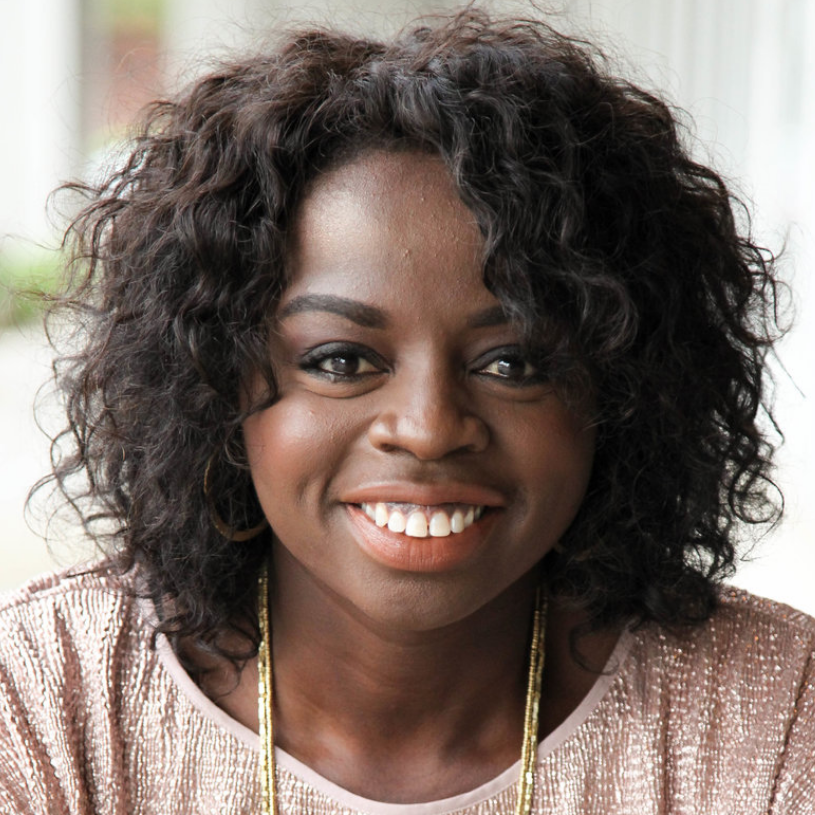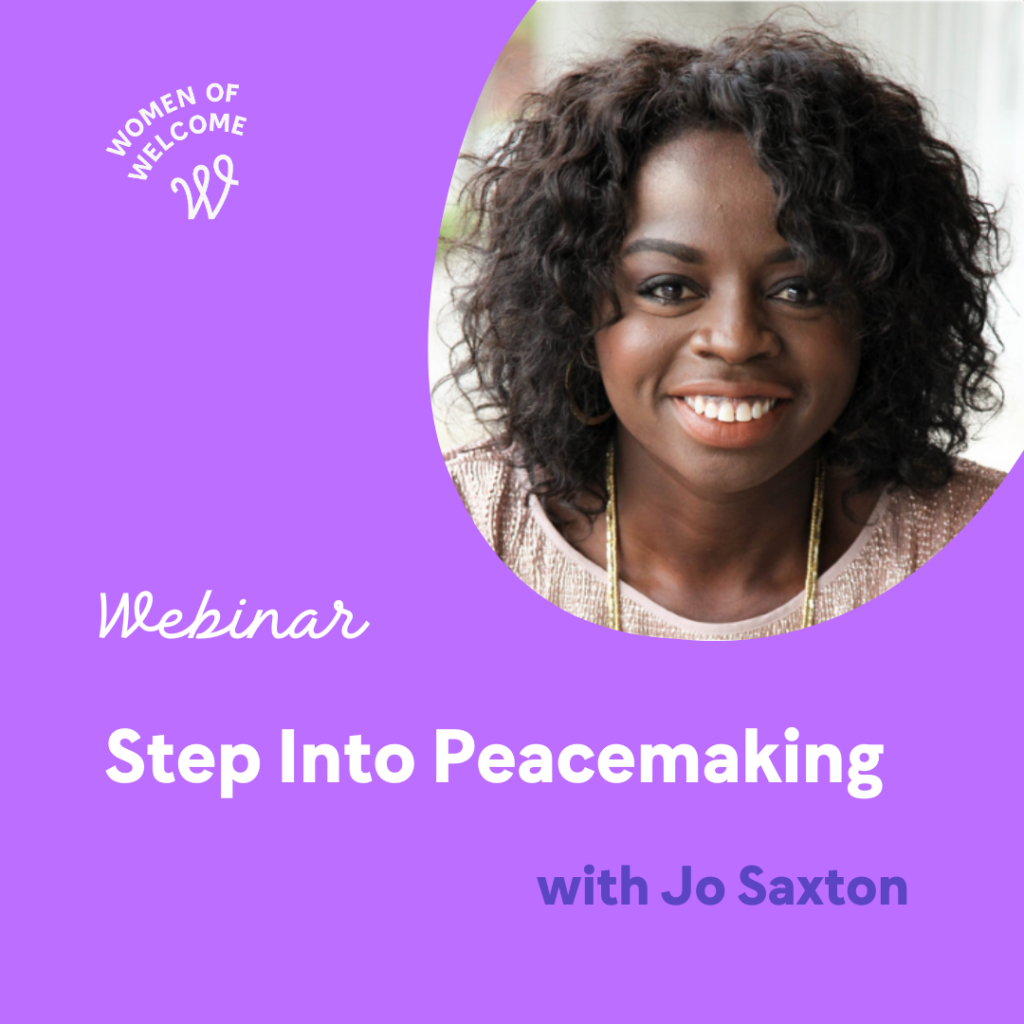In the midst of a conversation about how we can pursue our callings, own our voices, and gather our communities as we step into peacemaking, a Women of Welcome webinar guest bravely spoke about what it is like to be on the other side of conversations about immigration. As an immigrant to the U.K. and the U.S., Jo Saxton knows what it is like to be tolerated instead of celebrated.
Briana Stensrud, Women of Welcome Director, sat down last week for a conversation with author, speaker, podcaster, and entrepreneurial coach, Jo Saxton. Jo is co-host of the podcast Lead Stories and the founder of the Ezer Collective, an initiative that equips women in leadership. Jo is the author of four books, including Ready To Rise: Own Your Voice, Gather Your Community, Step Into Your Influence. Born to Nigerian parents and raised in London, Jo brings a multicultural and international perspective to her leadership training for women.
When the conversation turned to how we can be good listeners as we engage in difficult discussions, Jo shared her own story about growing up an immigrant.
Jo: There are times when a friend or someone who I’ve done life with will ask me a question and I’ll be like, “Do you really want to know?” I say, “We can talk about it but do you really want me to share? If you want to talk about race right now, if you want me to talk as an immigrant in this situation—what it feels like…Because if you want to know, I’ll tell you. But you’ve got to want to know.
Bri: I want to know…How does it feel to be talked about as less human, with less importance, and as nothing but a burden? How does that feel as an immigrant?
Jo: It was interesting growing up with it because it cast a shaming shadow. I used to watch people talk to my mum slowly and loudly. Like, when they would take me to the doctors, they would talk to my mum slowly and loudly. My mom is a nurse and she was the head of her ward, saving people’s lives every day. And yet there was this expectation that she didn’t understand, that she was somehow clueless.
I watched the scars, being scarred by people who didn’t dignify you with attention…I think for me as a child growing up in that, it gave me the desire to want to prove. I didn’t need to be liked, but I needed to be respected….
I remember my Aunt sitting me down and telling me, “it’s going to be really hard to make it in this country. You’re gonna have to work at least twice as hard because you have two things marked against you. You’re black and you’re a woman. Therefore, you won’t get away with what your friends get away with. You won’t be able to do what your friends do because when you walk into a room there are things that are already decided about you.
When they see your last name, when we talk about our culture, when we talk about our food, when we talk about our life —there are things that people will already decide about you. So, you will have to be at least twice as good so that even if they don’t like you or take you seriously because you’re a woman…they will still have to employ you because you’re way above average. It’s a kind of perfectionism based on survival and it doesn’t do well for us long-term.
(This segment is found forty-two minutes into the webinar, edited here for clarity).
Watch the entire conversation, with insights into God’s call to us as peacemakers and how to step into our legacy of peacemaking in these kinds of difficult conversations and spaces here.


 This resource answers the most common questions Christians have about immigration and equips you to engage conversations with biblical clarity, truth, and grace.
This resource answers the most common questions Christians have about immigration and equips you to engage conversations with biblical clarity, truth, and grace.